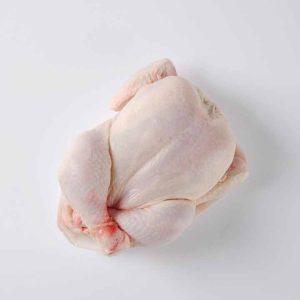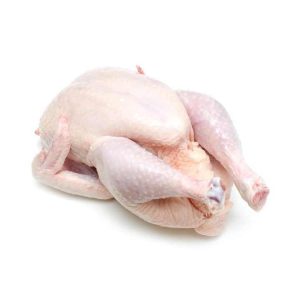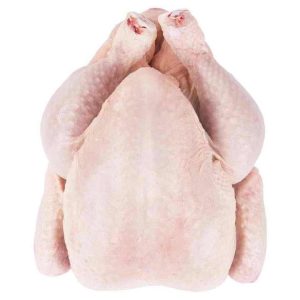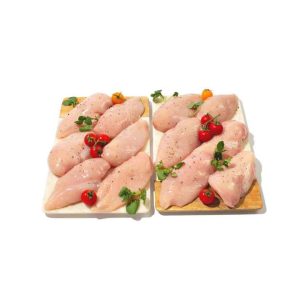1. Food Safety & Quality Assurance Policy
Objective:
To ensure all frozen meat and seafood products are safe, wholesome, and meet or exceed national and international food quality standards.
Policy Guidelines:
Adherence to the Brazilian Ministry of Agriculture (MAPA) standards and SIF (Federal Inspection Service) regulations.
Implementation of HACCP (Hazard Analysis and Critical Control Points) systems at all production stages.
Regular microbial and chemical residue testing of products and processing equipment.
Continuous employee training in Good Manufacturing Practices (GMP) and hygiene.
Traceability systems from farm or fishery to the final frozen product.
🔷 2. Cold Chain & Temperature Control Policy
Objective:
To maintain product safety, texture, and nutritional value through a continuous and controlled cold chain.
Policy Guidelines:
Products must be maintained at or below -18°C (0°F) from production to final delivery.
Real-time temperature monitoring systems must be in place in storage and transport units.
Deviations in cold chain temperature must trigger immediate corrective action.
Cold storage facilities must be audited monthly for operational efficiency.
Vehicles used for frozen transport must be insulated and validated regularly.
🔷 3. Animal Welfare & Ethical Sourcing Policy
Objective:
To ensure that all animals used for food production are raised and slaughtered in humane, ethical, and sustainable conditions.
Policy Guidelines:
All meat suppliers must adhere to Brazilian animal welfare laws and guidelines.
Poultry and livestock farms must follow humane handling, feeding, and transport procedures.
Use of antibiotics and hormones must be transparent and within regulated limits.
Fish must be wild-caught or aquacultured in compliance with sustainable fishing standards.
Animal stress must be minimized to ensure meat quality and humane treatment.
🔷 4. Environmental Sustainability Policy
Objective:
To reduce the environmental footprint of frozen food production and encourage eco-responsible operations.
Policy Guidelines:
Implement water treatment and recycling systems in all processing facilities.
Commit to energy efficiency through LED lighting, solar power, or heat recovery systems.
Partner with sustainable fishing programs and certified livestock producers (e.g., SISBOV).
Minimize packaging waste through recyclable, biodegradable, or compostable materials.
Encourage suppliers and transporters to adopt environmentally friendly practices.
🔷 5. Packaging & Labeling Policy
Objective:
To ensure that all frozen products are labeled accurately and comply with local and export market requirements.
Policy Guidelines:
All packaging must include production and expiry dates, SIF stamp, nutritional information, and country of origin.
Export packaging must meet destination country requirements (e.g., EU, GCC, USA, China).
Labels must include allergens, halal certification (if applicable), and preparation guidelines.
Barcoding systems must be used for inventory and recall tracking.
Tamper-proof and vacuum-sealed packaging is required for all exports.
🔷 6. Export Compliance & International Standards Policy
Objective:
To ensure full legal compliance for all exports of frozen meat, poultry, pork, beef, and fish products.
Policy Guidelines:
Comply with import regulations and documentation for each destination country.
Maintain export licenses, veterinary certifications, and customs documentation.
Follow global standards such as ISO 22000, BRCGS, FSSC 22000, and Halal/HACCP certifications.
Establish pre-shipment inspection systems for quality and document verification.
Implement digital export traceability systems tied to production batch numbers.
🔷 7. Product Recall & Incident Management Policy
Objective:
To quickly and effectively address product recalls, contamination risks, or customer complaints.
Policy Guidelines:
Maintain a 24/7 traceability system for every product batch.
Create an internal recall response team with defined roles and action plans.
Immediately inform authorities and partners in the case of health risks.
All recalled products must be logged, secured, and safely destroyed.
Post-incident reviews must lead to preventive policy improvements.
🔷 8. Hygiene, Sanitation & Worker Safety Policy
Objective:
To maintain a clean, safe environment for workers and consumers through strict sanitation practices.
Policy Guidelines:
Daily cleaning and disinfection of all equipment, workspaces, and high-touch areas.
Use of approved food-grade sanitizers and protective gear for all employees.
Monthly pest control audits and facility sanitation scoring.
Provide personal hygiene stations and PPE to all factory staff.
Train employees in proper handwashing, illness reporting, and equipment sanitization.
🔷 9. Product Innovation & R&D Policy
Objective:
To foster innovation in frozen food offerings while maintaining quality and safety.
Policy Guidelines:
Research new freezing technologies to improve shelf life and product integrity.
Develop value-added frozen products (e.g., marinated meats, ready-to-cook packs).
Conduct taste tests and customer research before launching new SKUs.
Use natural preservatives and clean-label ingredients wherever possible.
Engage with chefs, scientists, and nutritionists for continuous innovation.
🔷 10. Anti-Fraud, Transparency & Compliance Policy
Objective:
To ensure ethical business operations and prevent fraud or mislabeling of meat species or origins.
Policy Guidelines:
Conduct random DNA testing on meat products to verify species authenticity.
Maintain full transparency with clients on sourcing and certifications.
Establish whistleblower channels for reporting fraudulent or unethical practices.
Maintain up-to-date internal audits and compliance checks.
Cooperate with federal and international inspections proactively.
✅ Conclusion
Brazilian Frozen Food Companies are expected to uphold these comprehensive policies to ensure food safety, consumer trust, regulatory compliance, and market competitiveness. These policies should be reviewed annually and updated in response to regulatory changes or market demands.









Reviews
There are no reviews yet.